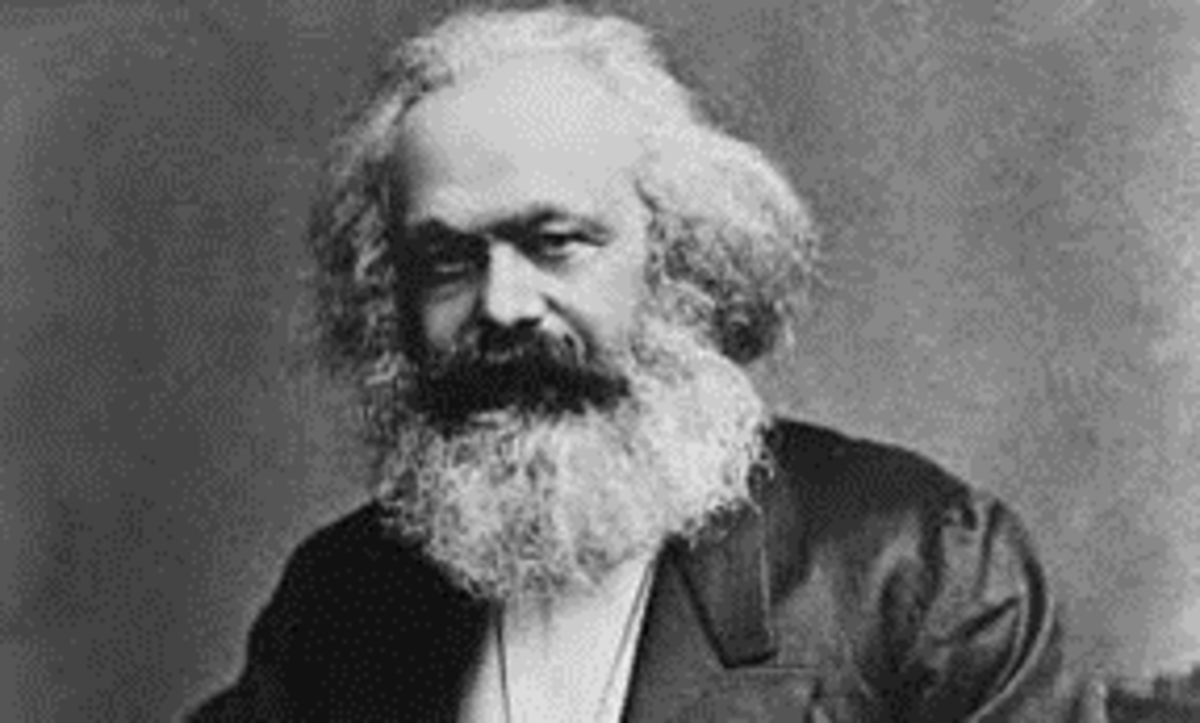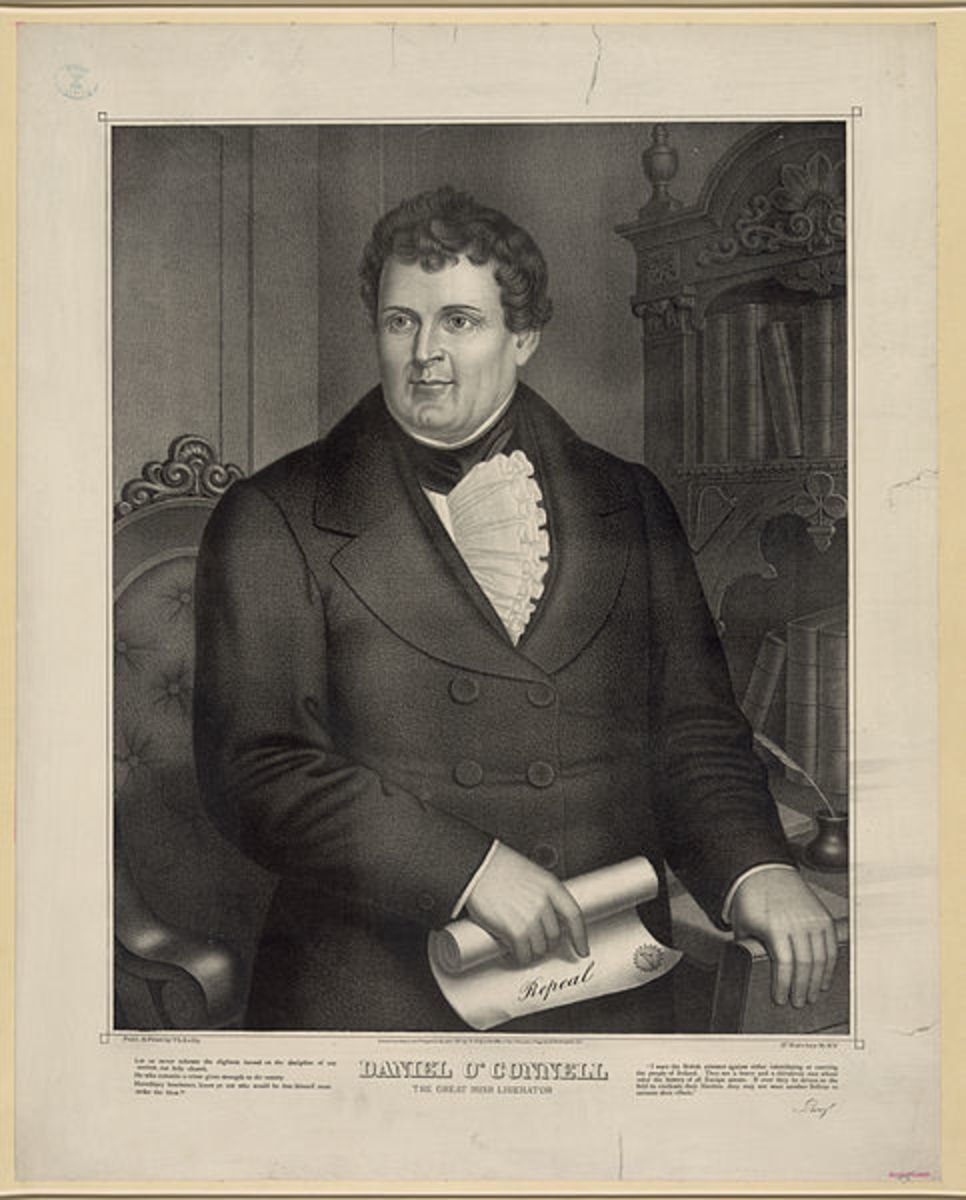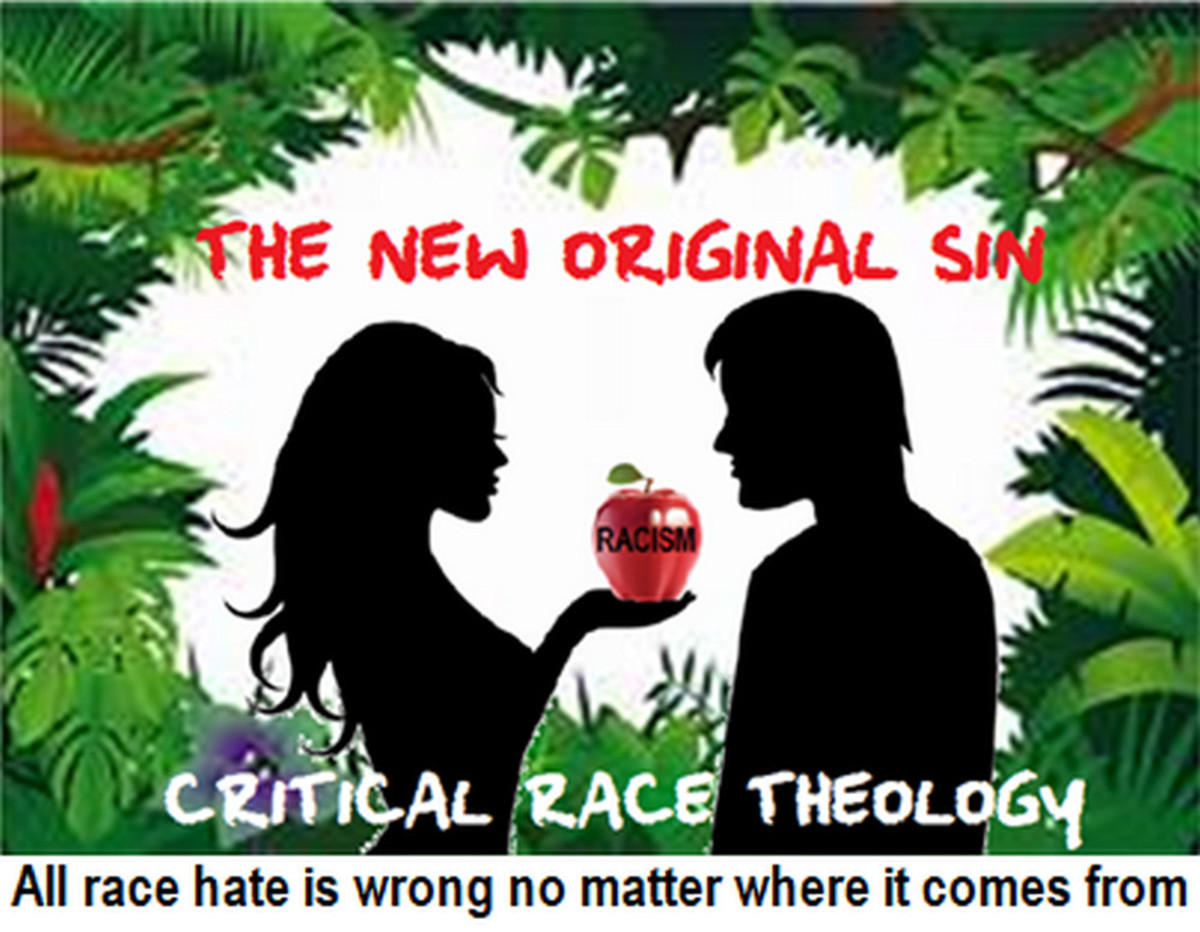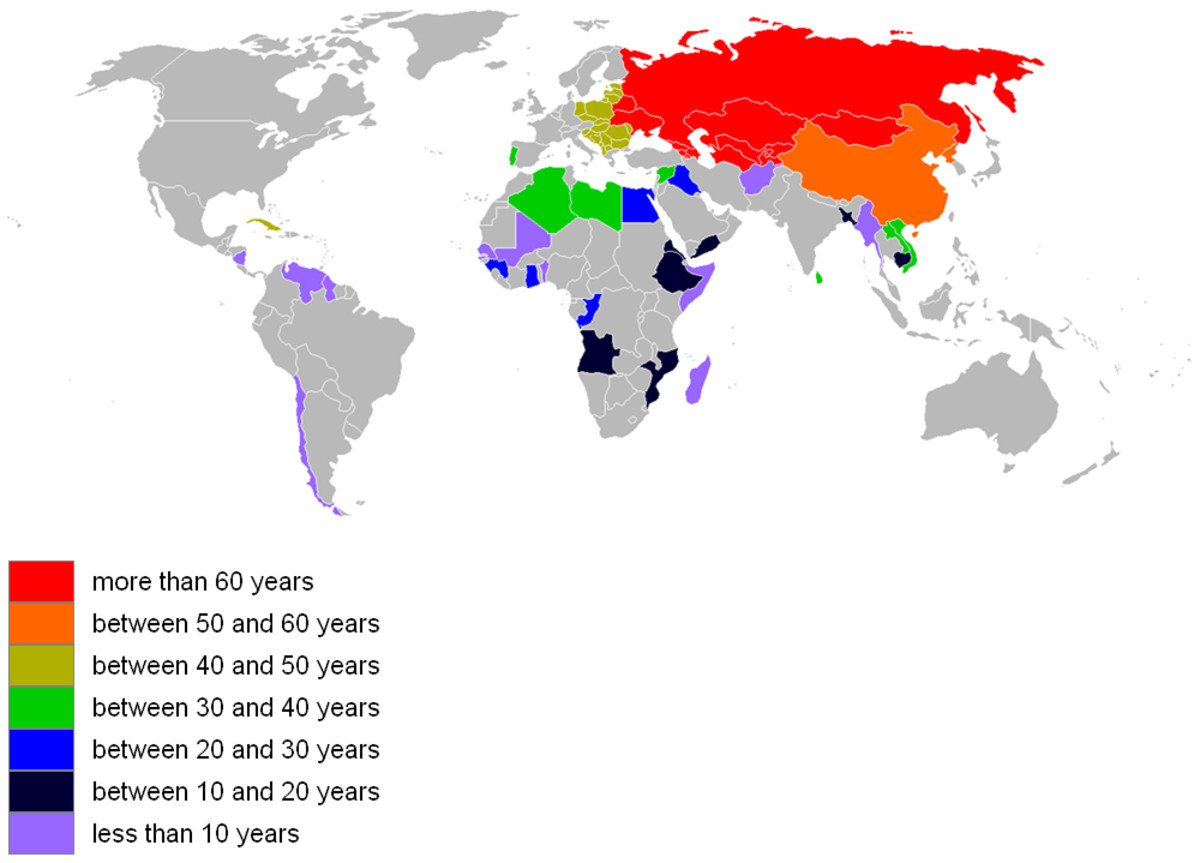Anarchy Reconsidered
Radicals Have Given Anarchy a Bad Name
Mention the word anarchy and most people visualize chaos and mayhem. This image of chaos certainly fits society's experience with anarchy in the past century or so.
After all, it was an anarchist, Leon Czolgosz, who assassinated President McKinley on September 6, 1901 in Buffalo, New York and were behind the earlier 1886 Haymarket Riot in Chicago.
In more recent times, many of the radical groups involved in the turbulence of the 1960s in Europe and the U.S. were either anarchists or influenced by anarchism.
The incidents above and other are all examples of the dark side of anarchism, which is heavily mixed with nihilism and violence.
Supporters of this type of anarchism have no plan other than the idea that by destroying the existing social structure they will make way for a better society. But they have no alternative to offer in place of the existing social structure. They are simply a demolition crew that destroys in hopes that what replaces the present structure is better..
An Idea Whose Time May Have Come
However, there is another strain of anarchism that is both non-violent and has a vision for an alternative type of social organization.
This variety of anarchism is radically different from the violent, nihilist variety. A core belief of this strain of anarchism is their opposition to violence and stress on the supremacy of the rights of the individual.
These anarchists also have an idealistic, but clear, vision of how such a society would operate in the absence of outside control.
In a nutshell, these anarchists believe in the free market principle that everyone is guided by self-interest.
However, they also realize and believe that humans are social creatures who have discovered the benefits of cooperation.
Throughout history, society has advanced, materially and spiritually, as people have learned to cooperate and specialize, rather than everyone doing their own thing and being totally self-sufficient.
Voluntary trade among members of society is the basis of civilization as well as one of its benefits.
While the easy route to acquisition of what one needs and wants in life is through cheating and force, most people avoid that route, not because they necessarily like their neighbor but because it doesn't work. A person may achieve some short term success by cheating but, as that person's reputation spreads, people will begin to avoid him and the cheater's opportunities for trade will decrease.
Similarly with violence. A stronger person using violence against weaker people sets the precedent for someone stronger to take from him. The same self interest which motivates each individual to think of themselves first is also the force that motivates us to work and produce as well as to deal fairly with others.
Farmers don't spend their days toiling in their fields out of a desire to feed the hungry but rather to produce a good, food, that others not only want and need but for which they are willing to pay.
The owners and workers in a factory have the same motivation. The result is factory workers are fed and farmers have clothes, tools and other manufactured products.
Similarly, people don't cheat and rob, not so much because these are wrong but because these activities are not in a person's long term self interest. In the view of these believers in anarchy, individual self-interest is sufficient to bring about a society that is both peaceful and productive without the need for a government to force them to be peaceful and productive.
Since government of some type have existed since the beginning of recorded history, it is difficult for most of us, myself included, to visualize a world without government. Logical as the arguments of the anarchists may seem, it is difficult to place our full faith in the idea that self-interest of others alone will prevent everyone from turning to violence.
Yet, when we look at it, how many of us obey society's rules not because of fear of punishment but out of self-interest? Is it the fear of being caught and fined for driving north in the southbound lane of the freeway or fear of getting killed by colliding with another car that causes us to drive in the correct lane?
Do we send our children to school because the law says we have to or because we want them to have a shot at the opportunities in life that an education offers? The fact is, most laws are obeyed because, fines and other legal punishments aside, we gain more from following the rule than from violating it.
In addition to the logic of people naturally acting in socially beneficial and cooperative ways without being forced,we have to look at the record of government sponsored violence in the twentieth century.
That century, which saw a huge expansion of government power world wide, was one of the bloodiest, if not the bloodiest, eras in human history. We are all aware of the vast number of deaths that resulted from World War I and World War II alone.
119.4 Million People Slaughtered by their Own Governments
According to University of Hawaii Political Science Professor Emeritus R.J. Rummel, (see link to his website below) about 24 million people, soldiers and civilians, died in battle during these two World Wars.
For all the 20th century's wars, total civilian and military deaths came to about 35,654,000. Given that a fundamental reason for government is to protect the lives and property of its citizens, this is a rather poor record.
But it gets worse. The real focus of Professor Rummel's efforts is his chronicling of non-combat slaughter of people by their own governments. His figure of 119,394,000 victims of death at the hands of their own governments, dwarfs the number of deaths due to war.
These figures do not include criminals executed for recognized capital crimes such as murder, or civilian deaths due to war (those figures are included in the war casualty figures cited above), but rather the simple slaughtering of innocent people merely to advance the political agendas of characters like Joseph Stalin, Adolph Hitler, Mao Tse-tung and other assorted thugs.
While the vast majority of these deaths, both in war and peace, were the result of actions by totalitarian governments, these totalitarian governments did rule the lives of a majority of the people on the planet during the twentieth century and most were recognized as legitimate governments in the community of nations.
Big Government and Economic Decline
Economics was the driving force behind the rise of the totalitarian governments and the expansion of power in democratic governments in the twentieth century. The popular belief, at least among progressive and other related socialist/fascist/communist politicians and their apologists, was that government could guide us to prosperity and even utopia.
There was a certain logic to this myth and it was believed by many.
However, today, with a century of history behind us, we can see that government was just as efficient at destroying prosperity as it was destroying people.
After some seventy years of misrule by the communists, Russia went from an emerging industrial nation at the beginning of the twentieth century to a third world basket case by the end of the century.
During much of the second half of the Twentieth Century, the Chinese communists tried to reduce population growth with a "family" policy of forced abortions and sterilizations. Not only did the program fail to reduce population growth, economic growth continued to stagnate.
When the Communist rulers of China were finally forced to relax their hold on the economy, living standards shot up and, despite their huge population, that nation is beginning to experience labor shortages in certain sectors of their economy.
Or take Great Britain, the cradle of the Industrial Revolution. Great Britain was the leading economic power at the start of the century and, like Russia, after years of gross mismanagement by a series of Labour and left of center Tory governments was reduced to nearly third world status.
Less Government Equals More Economic Growth and Less Poverty
But there were some glimmers of light in this economic gloom. Hong Kong, a small island colony (until 1999) of Great Britain with a good port and a many people. A minor outpost of the British Empire that, like the rest of Japanese occupied Asia following the end of World War II found its economy in shambles.
However, unlike other places, Hong Kong had two things going for it following the end of the war. Its colonial government had been evacuated to safety at the start of the war and, following the exit of the Japanese found itself temporarily without a government. Rather than falling into chaos, the people went to work rebuilding the colony. Hong Kong's second stroke of luck was the appointment of John Cowperthwaite to oversee the reconstruction of the colony.
Upon his arrival, Cowperthwaite noticed that the economy had started recovering on its own. Rather than using his power to have the government step in and help the economy, he stood by and let it revive on its own.
Doing nothing proved to be a daunting job as Cowperthwaite had to constantly fight off pleas by special interests for help as well as keep meddling bureaucrats from London out of the picture.
While Great Britain sank to near third world economic status, Hong Kong prospered and even surpassed Great Britain in terms of prosperity, seeing its GDP (Gross Domestic Product which is the total monetary value of a nation's economic output in a given year) grow to exceed that of Great Britain - all this from a colony consisting of a tiny island and a few acres of land on the mainland.
The Amazing Growth of the U.S. Economy in the 20th Century
The U.S. which enjoyed a lower level of government interference in every day life, despite the best efforts of the progressive Wilson, Hoover, Roosevelt and Obama administrations to reverse this, than most nations, managed to rise from fourth rate status (behind Russia and Germany) at the start of the Twentieth Century to become the wealthiest nation on earth by the end of the century.
One way to visualize the massive size of the U.S. economy today is to consider that the output of a single state, California, or the revenues of a single company, Wal-Mart, alone exceed the GDP of most nations.Further, if California and Wal-Mart were to be spun off as sovereign nations, not only would each of them retain their dominant economic status, but the U.S., even without them, would remain the world's largest economy - have the largest GDP - in the world.
Today, there are numerous examples of nations which, after existing under crushing poverty during most of the twentieth century, threw off the dead hand of government and, with low taxes and few regulations, achieved a high level of prosperity for their people almost overnight.
Growing Serious Debate Among Scholars on Both Sides
The dismal record of government with regard to protecting the people's welfare and the growing number of nations that are prospering by drastically reducing the role of government is causing many people to reconsider how much government we really need.
Adding to this is a growing body scholarship being produced by libertarian and Austrian School theorists, especially the late Murray Rothbard (1926 - 1995), (see link below for more information on Rothbard) advocating alternatives to the present nation state model of social organization, and you have the start of a foundation for an alternative framework.
Evidence that this is not simply a set of random events, but can be seen in the increasing number of scholars, outside the libertarian and Austrian School spheres, who are seriously commenting and evaluating, positively and negatively, on anarchist theories of social organization.
Rothbard, who was virtually ignored by the mainstream academic community during his lifetime, is now beginning to be mentioned regularly and his works are increasingly cited in mainstream academic literature.
Nobel laureates, like economist James Buchanan, have been studying the concept of anarchy and, while not advocating it outright, are beginning to look upon aspects of the theory with favor.
Others, like economist Gordon Tullock, are offering serious critiques of the theories and writings of the supporters of anarchism.
Criticism, like Tullock's is positive in the sense that serious scholars, like Tullock, don't waste their time trying to refute crackpot ideas (as evidenced by the lack of serious criticisms of the work published by outfits like the Flat Earth Society) as ridiculous ideas don't have to be refuted - their nonsense is easily seen by all.
By engaging in open debate with proponents of anarchism, critics are acknowledging that the ideas have substance. This critical debate helps the case for anarchy by bringing attention to the ideas behind anarchy theory and disseminating these ideas further into society. Scholarly criticism of this nature also forces proponents of the the theory to look at what their critics are saying and respond by either proving that the criticism is not relevant or modifying the theory to correct the weaknesses the critics point out.
Is Anarchy the Wave of the Future?
So, is government about to disappear?
I doubt it.
Can society really live without some entity having the power, beyond mere self-interest, to enforce rules?
Like all but a few committed believers, I also doubt that.
I can't imagine a world where bullies cease to exist and if bullies exist there has to be some counter force to thwart them.
Finally, does this mean that theories of anarchy will simply remain an obscure topic to be debated by a few academics?
Again, the answer is no.
While pure anarchy will never exist in practice on a global or near global scale, it will exist as both an alternative to powerful government and as a standard against which government failures can be measured.
As such positive anarchy theory will compete with big government theory for people's support and, just as in the market for goods and services, competition forces producers to constantly improve quality and drive down cost (by being more efficient).
The market for ideas is no different and in the market for ideas politicians will be continually forced to focus more on protecting citizens and property and less on increasing their power and helping their special interest supporters.
Links for Further Reading
- Artilce on Murray Rothbard
A great scholar who is only now, after his early death, begining to be appreciated outside of the school of Austrian Economics - Link to website of University of Hawaii Professor R.J. Rummel
Professor Rummel's statistics on the slaughter of innocents by their governments can be found here.
© 2006 Chuck Nugent








